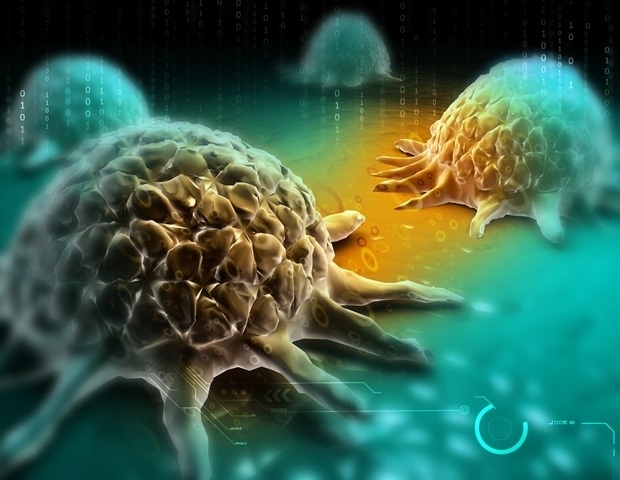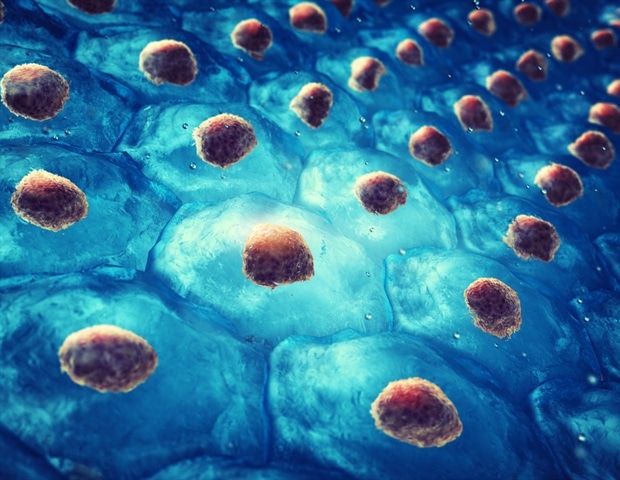In a new study led by Johns Hopkins Medicine, the drug RK-33 has demonstrated promise in treating breast cancer that has spread to the bone (breast...
Vous n'êtes pas connecté
- English
- Français
- عربي
- Español
- Deutsch
- Português
- русский язык
- Català
- Italiano
- Nederlands, Vlaams
- Norsk
- فارسی
- বাংলা
- اردو
- Azərbaycan dili
- Bahasa Indonesia
- Հայերեն
- Ελληνικά
- Bosanski jezik
- українська мова
- Íslenska
- Türkmen, Түркмен
- Türkçe
- Shqip
- Eesti keel
- magyar
- Қазақ тілі
- Kalaallisut ; kalaallit oqaasii
- Lietuvių kalba
- Latviešu valoda
- македонски јазик
- Монгол
- Bahasa Melayu ; بهاس ملايو
- ဗမာစာ
- Slovenščina
- тоҷикӣ ; toğikī ; تاجیکی
- ไทย
- O'zbek ; Ўзбек ; أۇزبېك
- Tiếng Việt
- ភាសាខ្មែរ
- རྫོང་ཁ
- Soomaaliga ; af Soomaali
 Maroc - ONCOLOGYNEWS.COM.AU - A La Une - 02/Sep 15:52
Maroc - ONCOLOGYNEWS.COM.AU - A La Une - 02/Sep 15:52
Innovations in cancer treatment through targeted bacterial vaccines
The human body hosts more than 1014 bacteria, which play crucial roles in human health. F. nucleatum, an oral anaerobe, is frequently associated with colorectal cancer and is linked to increased cancer cell proliferation, metastasis and poor treatment outcomes. Recent studies have shown that F. nucleatum can trigger autophagy in cancer cells, leading to increased resistance to various [...]
Articles similaires
Chronic stress accelerates colorectal cancer progression by disrupting the balance of gut microbiota, new study shows
Cutting-edge research has uncovered how chronic stress disrupts the balance of gut microbiota to speed up the progression of colorectal cancer (CRC),...
Extracellular vesicles play key role in cancer drug resistance
Despite significant advancements in cancer treatment, drug resistance remains a persistent challenge. Cancer cells can often develop resistance to...
James Van Der Beek Battling Colorectal Cancer
James Van Der Beek is batting colorectal cancer ... TMZ has confirmed. The 47-year-old actor, best known for "Dawson's Creek," was recently diagnosed...
Tissue stiffening linked to disease progression in HER2-negative breast cancer
A study published in Clinical Cancer Research confirmed that tissue stiffening in the most common types of breast cancer, HER2-negative, can directly...
New device enables real-time monitoring of stem cell growth
Unlike most cells in the human body, stem cells have the unique ability to divide indefinitely. This unique property makes them especially appealing...
Cell-Free Blood DNA Tests Less Effective Than Other CRC Screening
WEDNESDAY, Oct. 30, 2024 -- Cell-free DNA blood tests (cf-bDNA) may be more costly and less effective for colorectal cancer (CRC) screening than other...
Clinical study confirms tissue stiffening in breast cancer can drive metastasis
A study published in Clinical Cancer Research confirmed that tissue stiffening in the most common types of breast cancer, HER2-negative, can...
New bacteria-based therapy shows promise for fighting cancer
Even as cancer remains a leading cause of death globally, bacteria-based cancer therapy presents an exciting and innovative treatment option. Owing to...
Long-lasting immunotherapy response in stage IV lung cancer with brain metastasis
A new case report was published in Oncoscience (Volume 11) on October 8, 2024, entitled, “Complete and long-lasting response to immunotherapy in...
Les derniers communiqués
-
Aucun élément








